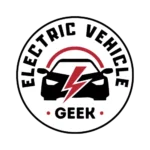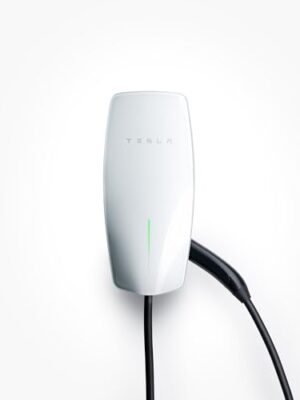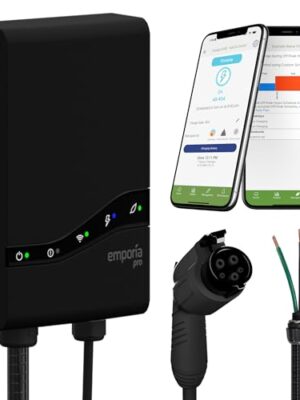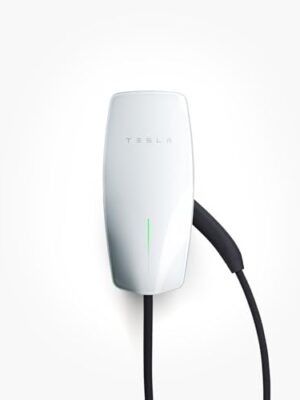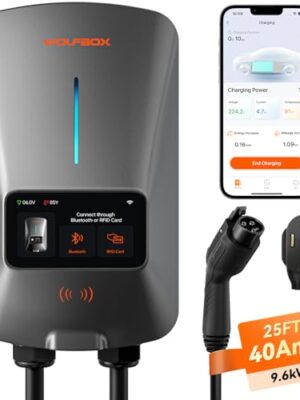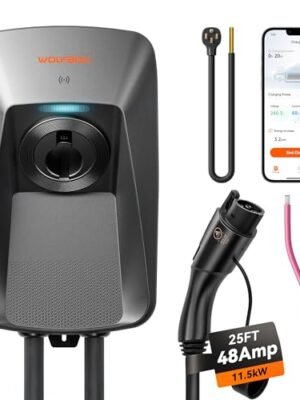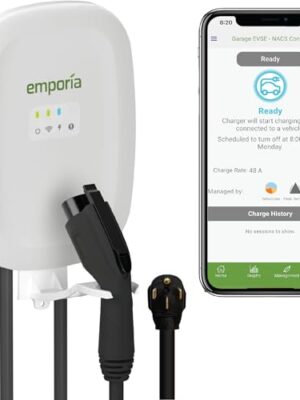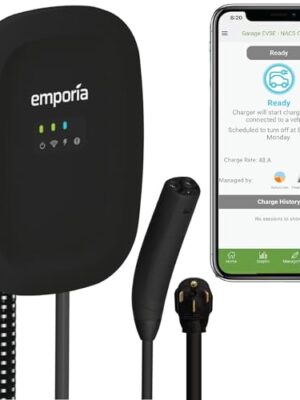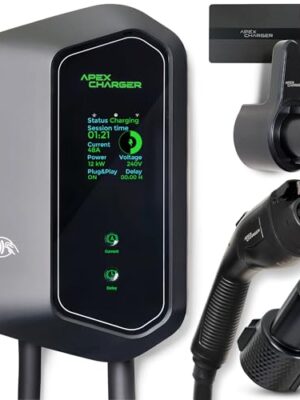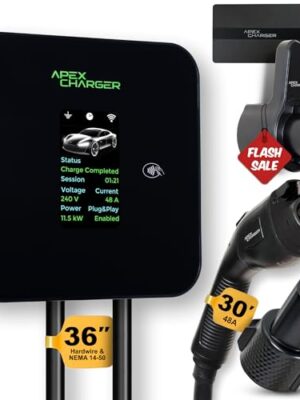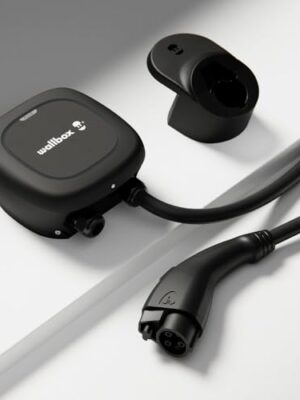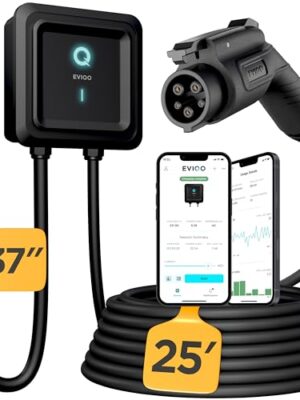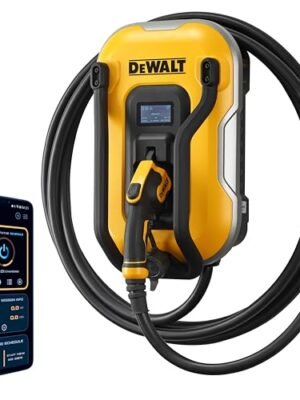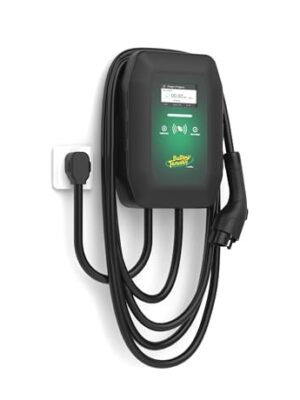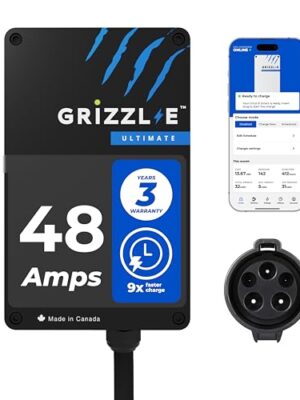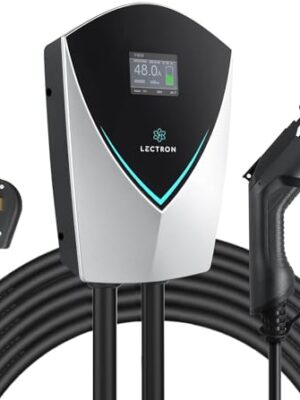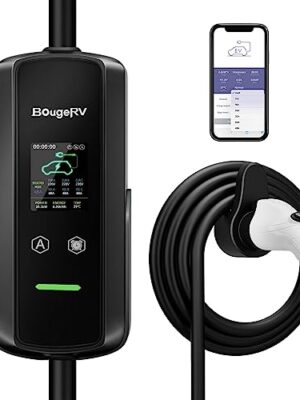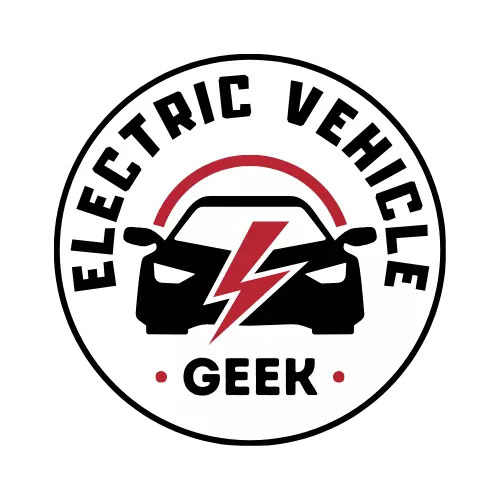Supported by you via insider access, and when you purchase through links on our site, we may earn an affiliate commission. See our Affiliate Disclosure.
11.5 kW EV Charger Reviews
Use the “Compare” button on each product to select multiple chargers, then click the ⚖️ scale icon to see a full side-by-side comparison.
What is an 11.5 kW EV Charger?
An 11.5 kW EV charger is a Level 2 unit on 240V, drawing 48A continuous. It provides 40–45 miles of range per hour. Minimum branch circuit ampacity = 60A, installed on a 60A breaker. Suitable for residential and commercial applications.
Why 11.5 kW Is the Most Popular EV Charger Output
For U.S. EV drivers, 11.5 kW remains the most practical, cost-effective, and future-proof choice in Level 2 charging compared to other EV charger power ratings and reviews. It delivers the maximum AC charging speed supported by most vehicles, works seamlessly with standard residential electrical systems, and offers the widest selection of products with top-rated features across both NACS and J1772 EV Chargers, as shown in our EV charger based on connector reviews.
Based on our full set of EV charger reviews, 11.5 kW models consistently lead the market in features, performance, and overall ratings compared to other power levels.
When it comes to Level 2 AC charging, 11.5 kW has become the sweet spot, favored by automakers, EV owners, and charger manufacturers alike.
Here’s why it leads the market in the U.S. and abroad:
Maximum Compatibility with Popular EVs
Most modern EVs are engineered with onboard chargers designed to accept around 11.5 kW AC input, making it the fastest charging speed that the majority of vehicles can realistically use.
Tesla models, such as the Model 3, Model Y, and Model S, all cap out around 11.5 kW, while mainstream J1772-equipped vehicles like the Ford Mustang Mach-E, Volkswagen ID.4, Hyundai IONIQ 5, 2025 Audi Q4 e-tron, and Chevrolet Bolt EUV are designed to operate within the same limit. Although a handful of premium EVs, such as certain Lucid Air trims, can take advantage of higher AC rates, they remain exceptions. For most drivers, an 11.5 kW charger is the practical maximum that aligns with their car’s actual charging capacity.
Perfect Fit for U.S. Power Systems
From the perspective of U.S. power systems, 11 kW also makes perfect sense. On a 240-volt split-phase residential EV charger setup, an 11.5 kW charger typically runs on a dedicated 50-amp EV charger breaker and adds roughly 30 to 40 miles of driving range per hour of charging. This makes overnight charging entirely feasible for nearly every EV on the market, without requiring the heavy electrical upgrades demanded by higher-output units such as 19.2 kW EV chargers.
In Europe, where three-phase power is standard, 11.5 kW serves a similar role as the optimal balance of performance and cost, which further explains why manufacturers have adopted it as the global default.
Market Leadership and Product Variety
The dominance of 11 kW in the marketplace has also fueled intense competition among manufacturers, leading to some of the most innovative and highly rated products in the EV charging industry.
Our reviews consistently show that the 11.5 kW power category holds many of the top-performing chargers overall, with the Tesla Wall Connector (11.5 kW) standing as the benchmark for NACS-equipped vehicles. On the J1772 side, standout models such as the new Emporia Pro EV Charger, WOLFBOX, and Emporia EV Charger have earned strong ratings for reliability, smart features, and long-term durability. The sheer number of options available at this output means buyers can choose from simple, cost-effective designs or premium smart chargers packed with advanced functionality.
For drivers who find 11.5 kW more than their electrical system or onboard charger can support, 9.6 kW EV Chargers have become the next most popular choice. This output is especially appealing for plug-in installations, offering a balance of strong charging performance with added flexibility and easier integration into existing home wiring.
Based on our research, most of the highest-rated EV chargers fall into the 11.5 kW and 9.6 kW categories. These two outputs dominate the Level 2 charging market in North America, with 11.5 kW serving as the benchmark for maximum AC charging speed on most EVs and 9.6 kW standing out as the leading plug-in alternative for drivers who prefer a more flexible installation.
